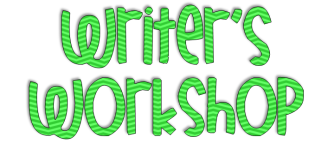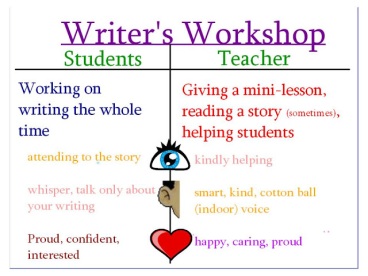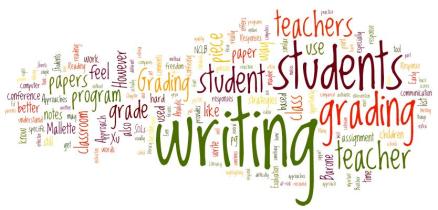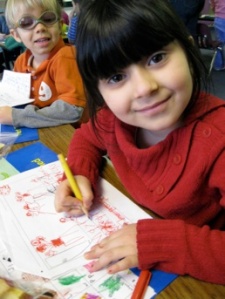What is a MOOC?
MOOCs (Massive Open Online Courses) are free online courses that allow anyone, anywhere to enroll and engage in learning from the comfort of their own home. MOOCs have opened the world of knowledge and education to reach a limitless number of people despite location, university affiliation or cost. Below is an example of a MOOC I designed (and could potentially lead) on the topic of Writer’s Workshop in the classroom.
I have designed a MOOC below entitled “Writer’s Workshop 411” to provide a better understanding of how MOOCs function.
Writer’s Workshop 411
In my Writer’s Workshop 411 course, students will master planning and preparation of the Writer’s Workshop process by creating videos, anchor charts, Wordles and lesson plans aligned to curriculum and Common Core Standards while communicating weekly with peers on current and desired practices of writing instruction, assignment critiques, the sharing of good ideas and collaborative lesson planning.
Course Topic: Implementating Daily Writing Workshop in a K-5 Classroom Setting
Are you a K-5 teacher….
- looking to amp up writing instruction in your classroom?
- failing to see as much success as desired in your writing instruction?
- needing a better understanding of the ins-and-outs of Writer’s Workshop?
- struggling to incorporate daily Writer’s Workshop?
…Then, this course is for you!
Participation in the Writer’s Workshop 411 course, will:
- provide a research-based overview of the Writer’s Workshop process
- teach how exactly to incorporate Writer’s Workshop daily in your classroom
- provide opportunities to collaborate with peers on writing instruction and the implementation of Writer’s Workshop
- teach you to use Writer’s Workshop as an instruction time specifically for individuals and small-groups
Upon completion of the 4week course, peers will be able to:
- understand the value of daily Writer’s Workshop for student writing instruction and development
- incorporate daily Writer’s Workshop as the main component of writing instruction
- meet daily with individual and small groups of writers for remediation, re-teaching, focus groups, challenge, creation of individual goals, etc.

Week 1: What is Writer’s Workshop and what does it look like?
Pre-Assessment: Students will create a Wordle listing at least fifteen words or phrases that describe how they currently view Writer’s Workshop/writing instruction in their classroom, describing why they chose these particular words/phrases and introducing themselves to the class.
Explore/Learn: Students will watch several YouTube video explaining and demonstrating the Writer’s Workshop process and take notes comparing and contrasting their own thoughts and experiences on Writer’s Workshop with those demonstrated in the videos.
Writer’s Workshop by Zaner-Bloser reading
Do/Create: Create a Jing (a voice-narrated video of your computer screen) similar to the YouTube video below describing what your current classroom writing instruction looks like.
Talk: Comment on three to four colleagues Wordles & Jing videos posted on the class wiki comparing and contrasting writing instruction in various classroom.

Week 2: What is a mini-lesson and how should it be taught before Writer’s Workshop takes place?
Explore/Learn: Read Small Moments: Personal Narrative Writing by Lucy Calkins and Abby Oxenhorn and take notes on the way the lessons are structured and taught. Watch the following YouTube video:
Do/Create: Using your specific required curriculum and/or Common Core Standards, write a lesson plan using the Lucy Calkins lesson plan format. Post your lesson plan on Google docs.
Talk: Students will critique and comment on a colleague’s lesson plan via Google docs.
Week 3: How do I manage my classroom while students are engaging in independent Writer’s Workshop?
Explore/Learn: Student will use the YouTube video, the assigned reading and the listed book to record observations and notes of what the teacher is doing and how the teacher is managing the classroom during individual writing time.
Welcome to Writer’s Workshop Reading
A Quick Guide to Reaching Struggling Writers
Do/Create: Create anchor charts for the following procedures to use in your specific classroom with your students:
- when and how students can sharpen their pencils
- where paper and other writing tools are kept and how they are to be put away
- how to date and label writing
- what to do when you need help or are “stuck” (e.g. use the resources in the room to help you like anchor charts, dictionaries, other published works, classroom books, other students)
- procedures for arranging for conferences, partner editing, publishing
Talk: Review and make comments on your colleagues’ anchor charts posted to the class wiki and make changes to yours (if desired) based on the ideas and comments of your colleagues.

Week 4: How do I manage my classroom while students are sharing their writing?
Explore/Learn: Students will record observations and compare/contrast the following video with the Lucy Calkins outline of whole-group sharing.
Do/Create: Students will create a video, in contrast to their Jing video created in Week 1, describing how they now view writing instruction and Writer’s Workshop at the completion of the course. The video will address changes to be made, strategies to implement, etc. that the student feels will better daily overall writing instruction and development.
Post-Assessment/Talk: Students will post a new Worldle after finishing the course and compare and contrast their thoughts on writing instruction and Writer’s Workshop prior to and at the completion of the course. Students will comment on the Wordles of their colleagues and post all final assignments on the class wiki.
Writer’s Workshop 411 Projects & Creations
Students will make a Jing video, two Wordle projects (one at the beginning and one at the end of the course), anchor charts to be used in their classroom for Writer’s Workshop behavior and procedures, a mini-lesson plan for Writer’s Workshop on Google Docs and a video describing their Writer’s Workshop and how it will be effectively implemented in their classroom.
Writer’s Workshop 411 Peer Collaboration Focus
This course will be reliant upon peer communication, peer commentary and peer collaboration. Students will practice collaboration in a way that avoids “reinventing the wheel” and focuses more on using colleagues and fellow teachers as a resource for improved writing instruction and daily Writer’s Workshop.
Weekly Module Course Design
For each week/module, students will participate in a “Explore/Learn” portion of the class that will focus on learning new content via readings and/or YouTube videos. After exploring and learning, students will put their new knowledge into practice by completing the “Do/Create” portion of each module. Finally, students will participate in the “Talk” portion of each module allowing them to collaborate with peers, share, critique and comment on colleagues work while learning from others in the course and networking with other teachers. The course is designed this way because it allows material to be properly scaffolded by introducing new content first, practicing new content through doing and sharing once the content is learned and finally, reflecting and collaborating with colleagues on learned material. This course is also created with the components of instructional design by teaching students to incorporate a real world performance (Writer’s Workshop), stating objectives each week, followed by content, methods of practicing the content and evaluation of an assignment/content each week. TPACK, the connection of technology, pedagogy and content knowledge, is also a foundational concept incorporated in the design of this course.
References
Blossom, A. (2011). Photos 1.
Calkins, L. & Oxenhorn, A. (2003). Small moments: Personal narrative writing. New York, NY: Heinneman.
Carlisjo. (2013, May 13) Writer’s workshop share. YouTube. Retrieved from https://www.youtube.com/watch?v=3f7hGEmvAPg
Cruz, C. (2008). A quick guide to reaching struggling writers: A K-5 workshop help desk. New York, NY: FirstHand.
Dulude, L. (2013, Nov 20). Explode a moment-watermelon and seed idea style!. YouTube. Retrieved from https://www.youtube.com/watch?v=cl6steziPGk
Koehler, M.J. (n.d.) TPACK.org. http://www.tpack.org/
Mesquite ISD. (2011, Sep 1). Writer’s workshop. YouTube. Retrieved from https://www.youtube.com/watch?v=uI2LBpCwyOE
National Governors Association Center for Best Practices & Council of Chief State School Officers. (2010). Common Core State Standards. Washington, DC: Authors.
Peha, S. (2003). Teaching that makes sense: Welcome to writer’s workshop. TTMS.org. Retrieved from
http://www.ttms.org/PDFs/05%20Writers%20Workshop%20v001%20(Full).pdf
Schoolwide Videos. (2009, Jun 30). What is writing workshop?. YouTube. Retrieved from https://www.youtube.com/watch?v=ttlKQAoWBKk
Tlmorrisvt. (2008, May 24). A day in the life of our writing workshop. YouTube. Retrieved from https://www.youtube.com/watch?v=zPRM2ZXyrS0
Zaner-Bloser. (n.d). Writer’s Workshop. Retrieved from https://www.zaner-bloser.com/news/writers-workshop
